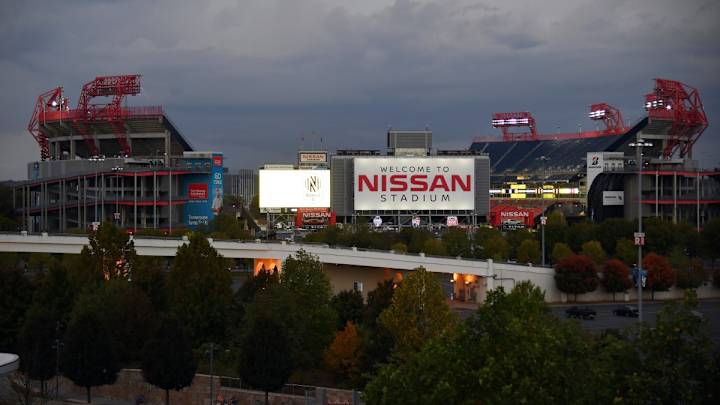Titans CEO: History Shows Impact New Stadium Can Have

NASHVILLE – Anyone who can’t see what a new, enclosed multi-use stadium might mean for the future of Middle Tennessee in general and downtown Nashville specifically needs only to look at the past, according to Burke Nihill.
The Tennessee Titans CEO appeared on local radio station WGFX-104.5 (The Zone) Friday afternoon to discuss the project, which took a significant step forward earlier this week when state lawmakers passed a new budget that includes $500 million to help fund the venue that franchise officials hope will be built in time for the 2026 NFL season. The goal, he said, is for the project to be of generational significance and to provide benefits that reach well beyond the team and its finances.
Nihill noted that much of the discussion about the benefits of a new venue mirror those that took place nearly 30 years ago ahead of Nissan Stadium’s construction and the agreement to bring the Houston Oilers to town. The franchise relocated in 1997, and Nissan Stadium opened in 1999.
“It was things like economic impact,” Nihill said. “It was an increase in tourism spending. It was civic pride. Things that have absolutely happened, [and] it’s interesting to think that there was a debate about any of those things happening.
“… If you do this right, you have the opportunity to create something that doesn’t exist today, to use this blank canvas in a way that – 50 years from now – people are sitting on the east bank of the river, using the riverfront, wondering how in the world does everyone have the thoughtfulness to get this right.”
The long-awaited development of that east bank of the Cumberland River did not happen 25 years ago but is very much a part of the thought process for a new venue. Nihill noted that Nissan Stadium’s current site and adjacent properties amount to 300 acres of prime real estate that are currently not producing anything close to the tax revenue of which they are capable. Once a new stadium is built, Nissan Stadium will be demolished and that site, which sits right on the river bank, would be redeveloped.
With all of that in mind, franchise officials hope to reach an “elegant solution” to the lease for a new stadium that makes the Titans responsible for the “go-forward maintenance and capital expenses” of the building. It would be a reversal of the current lease between the city and the NFL franchise, which Nihill said has been a bad deal for the city’s taxpayers.
He added the financial benefits could also help fund education, sidewalks, transit and other like government services.
“There is a lot of work ahead,” Nihill said. “We’re very grateful for the state’s support, but there’s a lot of work ahead with the city. We’re working with the city to find as many ways as possible to use things like sales tax from inside the stadium and other sources that are not general taxpayer sources for the lease and initial construction.”
In addition to the now-committed state funds, Metro Nashville has pledged another $500 million, and the franchise has committed to the rest, which will be upwards of $700 million and could exceed $1 billion. Nihill said franchise officials still need to “dig a little deeper” on the actual cost.
The fact that the new stadium will be enclosed – Nihill said no decision has been made on a dome or a retractable roof – will allow it to host “cultural events” year-round rather than just in warm weather months.
“Wherever we end up with a future building, we see it as a stewardship for this community,” Nihill said. “At its core, it’s a place for Nashville’s NFL team to play, Tennessee’s NFL team to play. But it can be so much more than that. … We should be having as many diverse events as we possibly can.
“… If we’re going to get this right, if this is going to be the sort of solution that 50 years from now people are looking back on and just treasuring, it’s going to take time to look at all of these complexities and put them in order and make sure we get them right.”
